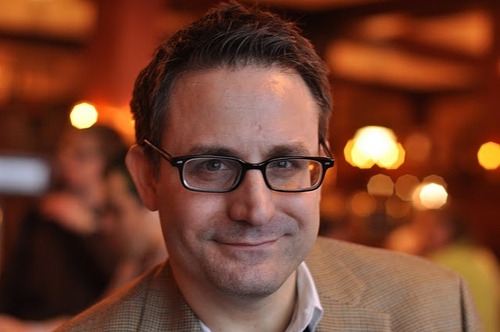
Go Forth is a series curated by Nicolle Elizabeth and Brandon Hobson that offers a look into the publishing industry and contemporary small-press literature. See more of the series.
After a few years of reading Ben Tanzer’s work, I finally got a chance to meet him in Seattle this past spring. Ben is the author of the books Lucky Man, Orphans, You Can Make Him Like You, My Father’s House, and, most recently, the book of essays, Lost in Space, among others. He has written on everything from drugs and 80s pop culture to fatherhood. You can read more about him on his website.
BRANDON HOBSON: Can you talk a little about how you came to publish Lost In Space with Curbside Splendor?
BEN TANZER: I’d been friendly with the founder Victor David Giron and he was always a great supporter of mine. We once talked glancingly, and over many drinks, about doing a nonfiction project together, but the opportunity really came together on another night, and over one or two more drinks, when Curbside was moving forward with the incomparable essay collection Meaty by Sam Irby. Victor said, “We have this great essay collection by a young, vibrant female writer where she talks about sex and illness and dead parents, and I’m wondering if you can do something similar, but from the perspective of an old, boring dad. Because that would rock.” And here we are. I should add, that Victor may remember that second conversation in a slightly different fashion than I do, but I’m sticking to that story.
BH: You approach issues of fatherhood in the book with humor by also managing to maintain an element of sadness, and you do this so well. Can you talk a little about this process of balancing the line between humor and sadness? Is fiction different from nonfiction?
BT: Those are kind words, and I’m thrilled you asked this. When I write fiction, I always try to balance humor and sadness, but some of those results are based on unconscious decisions. In attacking these essays, however, I consciously focused on looking to balance humor and sadness, whether sentence to sentence in a single essay, or from one essay to the next. Parenting is endlessly frustrating, and for me, filled at times with rage. Parents die. Children get sick. You get older and more scared of things. The world can feel so fucked and wrong. But you can’t just write about all of that. Who would want to read it? No one, so even as I am come off like a whiner nonpareil, I also sought to constantly remind myself that there is good in the world,...
You have reached your article limit
Sign up for a digital subscription and continue reading all new issues, plus our entire archives, for just $1.50/month.
Already a subscriber? Sign in




